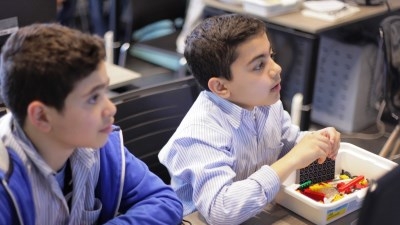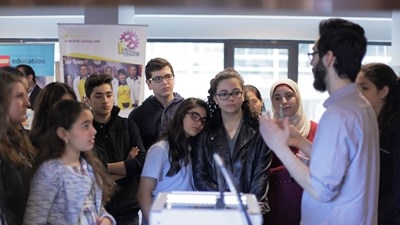“Tech For Kids” was a series of events held in Beirut to expose children, teachers, and members of the Lebanese government to the use of innovative ICT tools in problem solving and collaboration in the classroom, as well as to new ways of fostering creativity—an issue critical to the future economy of a country where high literacy rates and high enrollment in tertiary education produce a pool of well-educated youth, about one third of whom (34%) are unable to find employment at home.
Launched by the World Bank in late April, the principal belief of Tech For Kids is that using technology in the classroom can improve children’s core education or STEAM—science, technology, engineering, the arts and mathematics—by equipping students with the tools they need to pursue careers in jobs that need them to be more innovative. Understanding technology, and applying some of the methodologies related to it, is a key skillset in today’s labor force. Even more valuable, though, are the skills children gain in the process. Faced with high unemployment rates and complex economic barriers, gaining better skills in critical thinking from an early age, promises to help equip future generations in Lebanon with a more competitive and entrepreneurial labor force.
How does Tech For Kids equip children with 21st century skills?
The Tech for Kids program began with holding a small fair for middle school children (age roughly 11–14), as well as for their parents and teachers. This was followed by a workshop at Beirut Digital District, where teachers and students from several schools—public and private— worked with local and international education experts on exploring new technology. The technology included LEGO Education, littleBits, Scratch, 3D printing, Raspberry Pi and a new, Lebanese-manufactured building tool, QalamSila.
The sessions were led by Stuart Swann, a LEGO certified trainer from the UK; Sabine El Kahi, the founder of Kids Genius; Eliane Metni, Director of International Education Association; and Jose Antonio Galaso, an education specialist from Barcelona who previously worked at CitiLab, which pioneered the integration of these tools, as well as other educational approaches. Through hands-on exercises in building and deconstructing structures, facilitators familiarized participants with creativity, teamwork, and “learning by doing”.


